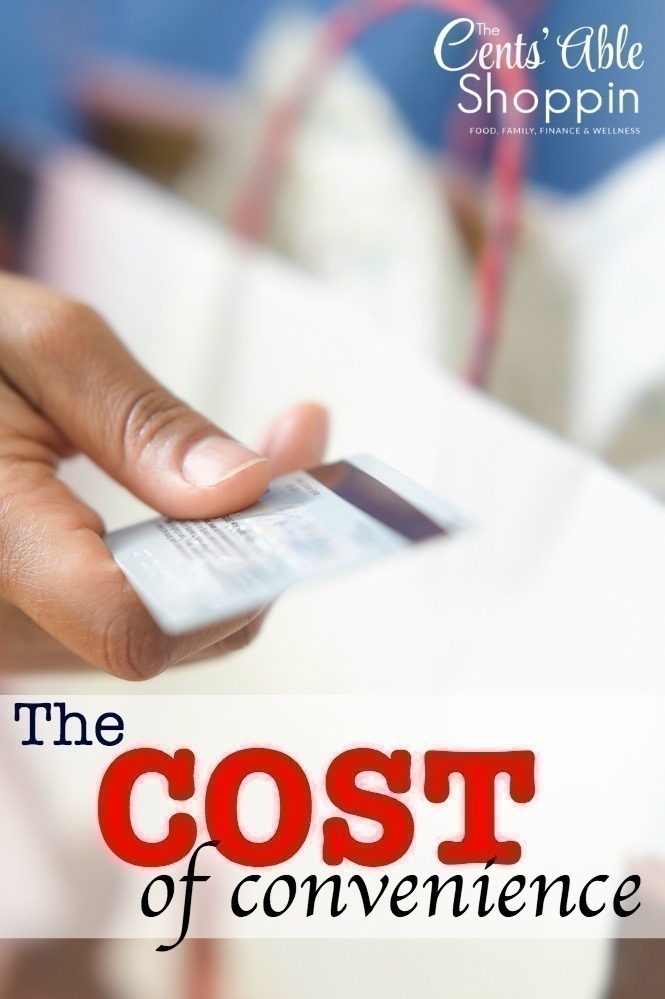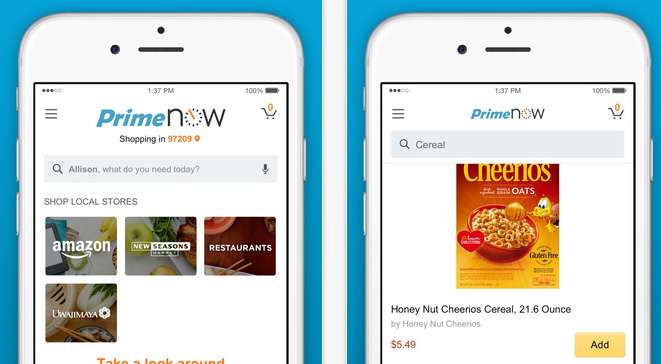
Open up your email inbox in the morning, or at any given time and you will see a laundry list of specials ~ from Domino’s pizza to Papa Johns, On the Border, Outback Steakhouse, SONIC Drive In and more.
In fact, that’s exactly how my inbox looked yesterday – one after the other. Do you read the offers or delete them?
Domino’s was founded in 1960 – sure, they are selling pizza. But they are also selling a convenience factor. Same with little Caesar’s $5 pizza – drive by any Little Caesar’s shop between the hours of 4 – 7 p.m. and you’ll likely see an overflow of people … some waiting outside perhaps, people lined up in the store front.
What led to this?
Combine busy schedules with dual income families, households with children, and demanding jobs…it all boils down to one commonality – convenience.
People are willing to pay for a dinner solution that requires little to no effort – it’s an easy solution to a busy lifestyle. That’s probably the reason why Domino’s has over 200 stores across the U.S.
That appeal of convenience has transpired to much more than easy dinners though – it’s transformed every aspect of our lives.
Convenience has transpired from Food to Health, Coffee, Beverages, Automotive Care, and more – in some ways it has conditioned us to to do without thinking. That in itself is a pretty scary thing to admit. Convenience isn’t appreciated at this point – it’s almost expected and demanded in most cases. Would you agree?
That convenience, however, comes at a cost – although it might help us alleviate the stress of planning dinner, that convenience is costly in terms of our health and our pocketbook.

Consumerism is a rather big deal – not just in the U.S. but across the world. Materials are often times cheap to produce and purchase – as a result, they are readily available in stores like Walmart, Target, and in some cases, online. Shopping for these items is easy too – after all, who doesn’t go to Walmart these days? Push a button on your phone and you can order from Amazon at any time.
That accessibility has made consumption effortless – and through the use of advertising and marketing, mobile apps, and stores on every corner, we are inundated with opportunities to buy more than what we might truly “need”.
We feel compelled to buy but we may not necessarily need the things we are buying. Does that make sense?
So what does Convenience result in? Lots of things actually. Think about it… for a few hours. You might just come up with a few more that we don’t have listed below.
Waste. Consumerism is a rather big deal – not just in the U.S. but across the world. Things have become cheap to produce and purchase – as a result, they are readily available in stores like Walmart, Target, and in some cases, online. Shopping for these items is easy too – after all, who doesn’t go to Walmart these days? Push a button on your phone and you can order from Amazon at any time. That accessibility has made consumption effortless – and through the use of advertising and marketing, mobile apps, and stores on every corner, we are inundated with opportunities to buy more than what we might truly “need”.
Health. The cost of convenience has a tremendous impact on our health ~ do you shop at the grocery store? If you do, 70% of items on supermarket shelves are processed convenience foods. Over 70% of packaged foods sold in the U.S. are genetically modified. Sure, you might be saving your time time, but you are putting your health and the health of your family on the backburner in efforts to save your sanity. Is it worth it?
In many cases, health issues are addressed with a trip to the doctor, for a prescription that only masks the symptoms/issues, but doesn’t treat the cause of the issues at the root. Doctors will always be eager to prescribe (most – in fact, a good majority…) – instead of looking for that quick fix, why not look at your lifestyle and determine the root cause? Change your eating habits, your lifestyle and your outlook? In many cases that will prove better for your health long term, but it also requires discipline and effort, too.
Expense. Although in some cases it might appear to be cheaper to buy this convenience, it’s really not cheaper at all. Aside from the fact that you are doing a disservice to your health and the environment. Convenience is relatively expensive – making your own food at home is actually much less. Allowing yourself to stock up on pantry staples, knowing how to cook, and being creative with your meals is important for keeping costs low. Unfortunately, people have become so accustomed to the cost of convenience, that the justify that as being more cost effective – after all, who wants to break out the pots and pants on a hot day in June with a large family? It’s just easier to buy a pizza.
Environmental Effects. The effects of convenience can have some profound environmental effects too – all that packaged food, K-Cups … burger bags (fast food), diapers and wipes (baby…) and more result not only in waste, but also transportation costs, fuel costs, processing costs, and – in the end, waste.
Relationships. Convenience can cause us to miss those opportunities to connect with others – text messaging, Facebook private messages, and Facebook posts can prevent us from focusing on what is really being communicated/said. Instead, we should be getting together with people to have a real conversation that doesn’t just brush the surface of a topic. For many, it’s not convenient to have them over for a nice dinner you have prepared – or, it might not be convenient to drop off a dish for a family who had a new baby, but it WILL be more memorable in the long run.
Being Intentional. When you opt for convenience, often times we miss our opportunity to be intentional with our purchase. We are so conditioned to performing actions, that we neglect to look at what we are truly eating. We don’t realize how those medications are hurting us long term. We we are not conditioned to think about our choices – it’s automatic. We have become reactive instead of
Convenience isn’t always a bad thing though – there are times when it’s essential, and can really be a tremendous benefit. Back in December we picked up an Instant Pot – THAT was convenience. But since then, we have used it multiple times a day. It has allowed us to eat dinner at home and make healthy food quickly, and eat together as a family instead of going out to eat. Every day I use my dishwasher – I have to… I cook SO much, I’d be doing sink after sink of dishes. That’s a convenience too – but it’s a necessity almost. I probably do as many dish loads by hand as I do in the dishwasher (I just cook that much), if I didn’t, I’d be running that dishwasher at least 4-5 times a day.
In any case, it’s important to take a look at your lifestyle in these areas and see if your purchases are having an impact on your budget – your health, and finances, relationships with people. If they are, then perhaps the “cost” of that convenience has become too great.




Leave a Reply
You must be logged in to post a comment.